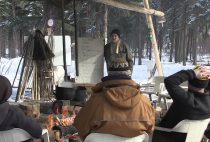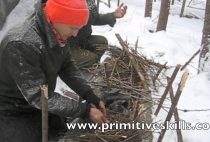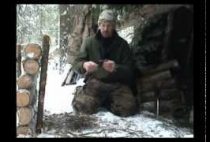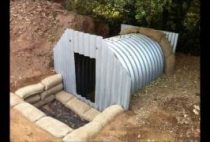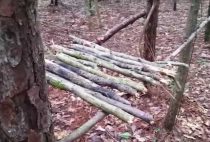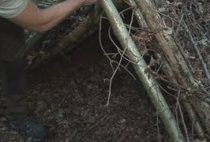Dispersed Primitive Camping in a US National Forest
This video describes the extra responsibilities and skills required for dispersed primitive camping, compared to campground camping. I also review the gear that I typically use.
(1) KNOW BEFORE YOU GO – Be prepared with proper map(s), information, and equipment. Check with authorities on what is allowed in your area.
(2) CHOOSE THE RIGHT PATH – Use existing trails and avoid trampling seedlings or flowers. Walk on durable surfaces such as bare ground or rocks. Avoid making new trails between your campsite and the main trail.
(3) CAMP 200 FEET AWAY FROM TRAILS AND WATER SOURCES – If you are camping where others have camped before, pick a site that has been previously used. Do not camp in the middle of a clearing or meadow; try to make your campsite less visible so that other visitors will see a “wild” setting.
(4) KEEP WATER CLEAN – Do not put soap, food or human waste in water. Bury human waste 4-8 inches deep and at least 200 feet from water, camp or trails. In sensitive ecosystems, it may be necessary to carry-out human waste.
(5) STASH YOUR TRASH – Take your trash home and dispose of it properly.
(6) LEAVE IT AS YOU FIND IT – Leave vegetation, rocks and historical items as you found them. Don’t try to level or dig trenches in the ground at your campsite. For tents, pick a site that’s already level with good drainage.
(7) BE CAREFUL WITH FIRE – Be aware of local prohibitions on burning. Use camp stoves. If you make a campfire, don’t build new fire rings or build fires next to large rocks. Use dead wood from the ground; don’t break limbs off trees or cut trees.
(8) FOOD – Do not put food in your tent. Store food away from the reach of wild animals.
References:
Little Lake Creek Wilderness:
Texsport Camouflage Two-person Trail Tent:
Bob808Knight Texsport Tent Review:
Sawyer Squeeze Water Filter:
Bushbox Hobo Stove:
Mini-Alice Pack:
Haversack: purchased from an army surplus store; I was told it was from the Russian Army; similar haversacks may be purchased on the internet
Thermarest Self-inflating Sleeping Pad:
Eureka Casper 15F Sleeping Bag:
PHARRAOAH:
Videography by Ken Kramm, February 2013, Little Lake Creek Wilderness, Sam Houston National Forest, Texas, USA; Canon Vixia HF G10, IPhone5, Bushnell Trophy Cam XLT, Final Cut Pro X. “Call to Adventure” Kevin MacLeod (incompetech.com) Licensed under Creative Commons: By Attribution 3.0 Direct Link: .
- Education
- Backpacking
- Bushcraft
- Camping (Taxonomy Subject)
- climbing
- Dispersed Camping
- educational
- family
- fun
- Hammock
- hiking
- Holiday
- Ken Kramm
- Leave No Trace
- National Forest
- nature
- outdoors
- Stealth Camping
- Survival
- Survival Skills (TV Genre)
- tent
- trails
- United States National Forest (Park System)
- Weekend
- Wild Camping
- wilderness
- Wilderness (Quotation Subject)




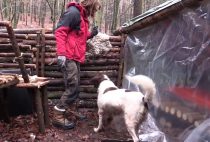


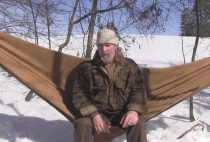




![Wood stove / Searching for water / Drinkable water [The survival game #04]](http://survivalbasics.com/wp-content/uploads/2013/06/Wood-stove-Searching-for-water-Drinkable-water-The-survival-game-04-210x142.jpg)


